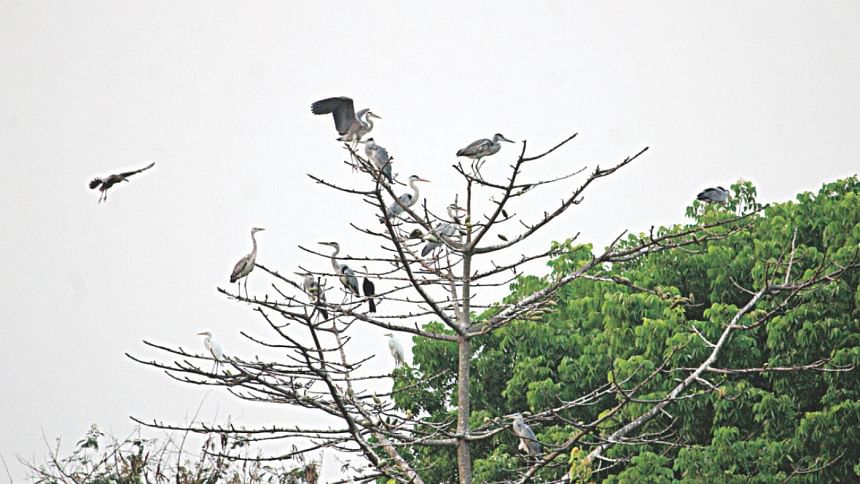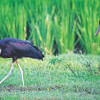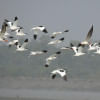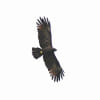Nature Quest: Birds of the beel

Like a reverse oasis, parcels of land in Mohadanga area in Chapainawabganj have emerged from the depths, being the solitary spot for greenery in an otherwise expansive area of blue. In one such land, stand mango, neem, tress and silk cotton trees. Their foliage, offering shade to many feathered friends, has become a paradise for wetland birds.
This particular beel comes alive with songs of birds every day, attracting a large number of visitors, including birdwatchers and bird lovers.
The wetlands here have become the perfect habitat for the birds; a place where they breed, nest and rear their young.
Villagers say the number of different species of birds is increasing every year. This is due to hunting birds being completely forbidden.
Expressing their resolve to protect the birds, locals said they alert newcomers and visitors and prohibit them from hunting.
During a visit to the spot recently, five kilometres off the district headquarters, this correspondent saw over 500 birds on the many trees.
The more commonly seen birds were little cormorants, great egret, large egret or great white heron, Indian pond heron, chestnut bittern, yellow bittern and Asian openbill or Asian openbill stork, among others. These distinctive birds are found mainly in the Indian subcontinent and Southeast Asia.
The chirping of the birds in the evening makes the surroundings fascinating. During the daytime, they leave the trees in groups and return gradually.
Kaisar Imam, who came to visit the place, said it was really amazing to see hundreds of different species of wetland birds on the trees.
The chirping of these birds soothed the mind, and the way they flew overhead added some adventure to our life, he said.
Ten years ago, some people indiscriminately hunted birds, but now the locals have become more conscious of the harm it causes, he said.
Nur Ajamul Alam, 52, a businessman of the area said, it was a matter of pride for them that people from far-flung areas came here to see the birds.
Environmental organisation Save the Nature, Chapainawabganj is working to protect birds from poachers. They also offer counselling to youths. Recently, they erected a billboard at Mohadanga area to create awareness among the people about these birds.
"Continued housing, different small industries development and agricultural expansion in the district has threatened or destroyed natural habitats where the birds lived, but the birds are important because they keep the ecosystems in balance, so we are trying to save them", said Foysal Mahmud, coordinator, Save the Nature, Chapainawabganj.

 For all latest news, follow The Daily Star's Google News channel.
For all latest news, follow The Daily Star's Google News channel. 








Comments